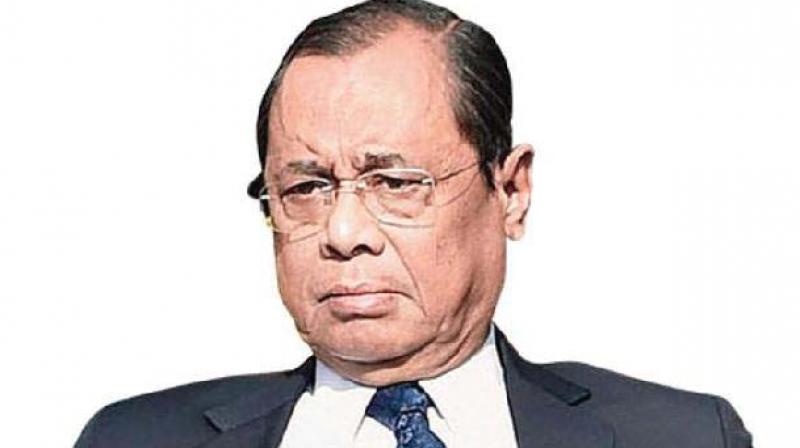High-stake review verdict in Sabarimala case today
CJI Gogoi-led bench to hear 40-plus petitions in Chamber at 3 pm.

Thiruvananthapuram: A bench of five judges of the Supreme Court, headed by Chief Justice Ranjan Gogoi, will consider at 3 pm on Tuesday in their chamber whether to dismiss the 40-odd petitions seeking a review of the Sabarimala verdict, permitting women of all age groups entry at the sannidhanam, or list them for open court hearing.
The review takes place three days before the Mnadala-Makaravilakku pilgrimage season starting on Friday evening. More than any other arm of the state government, the police, who had to do a trapeze act to avoid bloodshed at the sannidhanam, awaits the verdict with bated breath.
The bench would decide to have an open court hearing only if the review petitions bring up any apparent error or omission in the original verdict of September 28. Normally, review petitions are rejected.
Besides Mr Gogoi, who replaces his predecessor, Deepak Misra, others on the bench are Justices R. F. Nariman, AM Khanwilkar, D.Y. Chandrachud and Indu Malhotra, who wrote the sole dissenting judgment.
On Tuesday morning, Chief Justice Gogoi, Justice S K Kaul and Justice Kurian Joseph will consider three writ petitions of a similar nature, contending that the verdict deprives Ayyappa devotees of their fundamental right to practise the religion of their choice. The bench may dismiss the writ petitions prima facie or club them with review pleas if it decides to hear the latter in the open court.
Review petitions, including that by the Nair Service Society and the National Ayyappa Devotees Association, are based on Justice Malhotra’s assertions about Ayyappa devotees being a denomination or a sect and the lack of locus for the original petitioners, who were not Ayyappa bhakts, and that "faith cannot be judged by scientific or rationale reasons or logic".
Review petitioners also contend that the basis of prohibition was not the physiological nature of women. The practice of young women keeping off the temple was on account of the concept of the deity being intrinsically a “naishtika brahmachari”.
But experts point out that there has been nothing afresh in review petitions and that Justice Nariman especially had delved into the question of denomination/sect, leaving no scope for a review on that score, they say.
Violent incidents in the aftermath of the verdict, the failure of the State Government to rein in troublemakers and ensure protection for young women to have Ayyappa darshan are not clinchers for review petitions either way. The fact that more than 500 young women have registered for the online Sabarimala queue is also not pertinent to the fate of the review petitions.
However, BJP, which has been in the forefront of the agitations against the SC verdict, reiterates its argument that courts are not the final arbiter on the question of faith.

